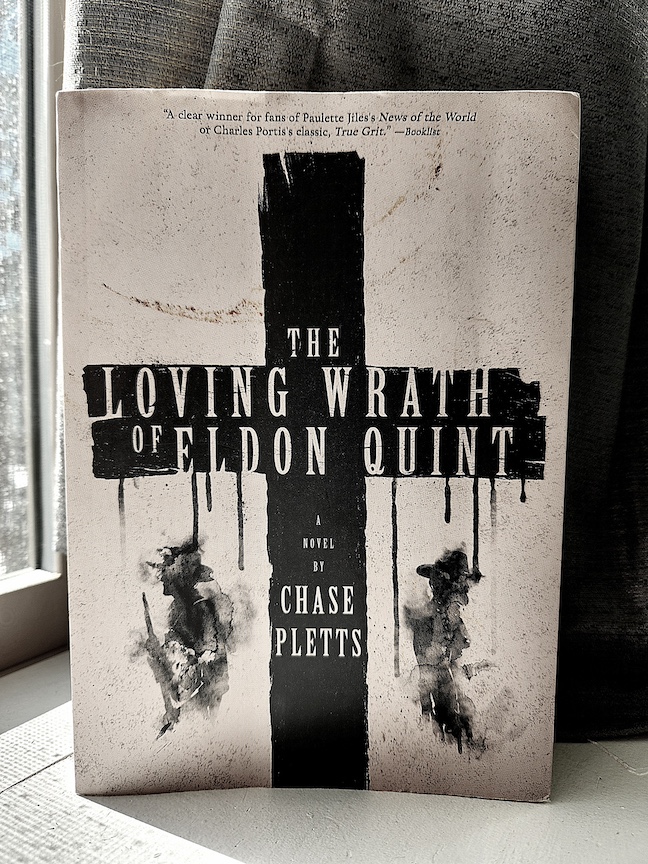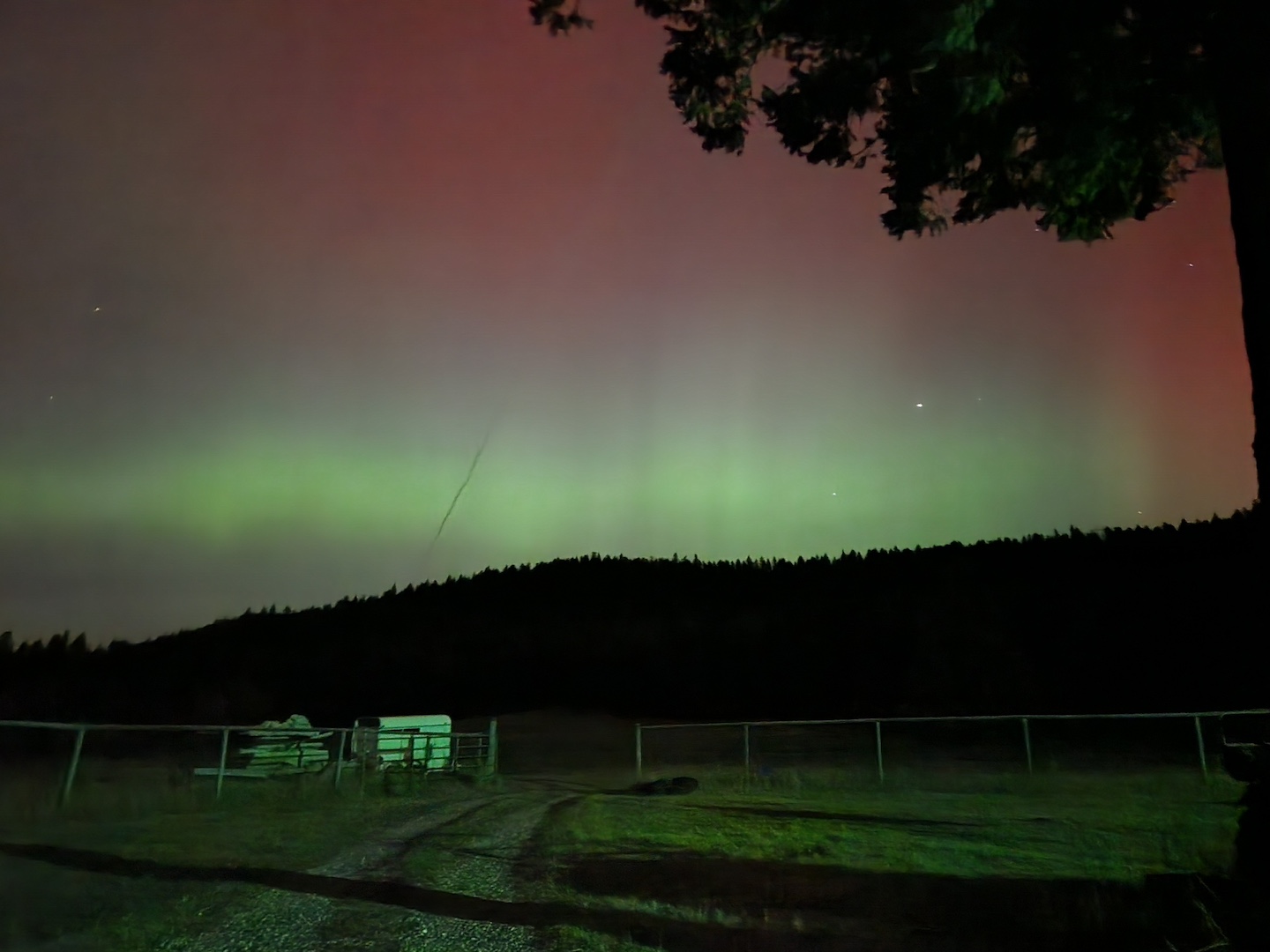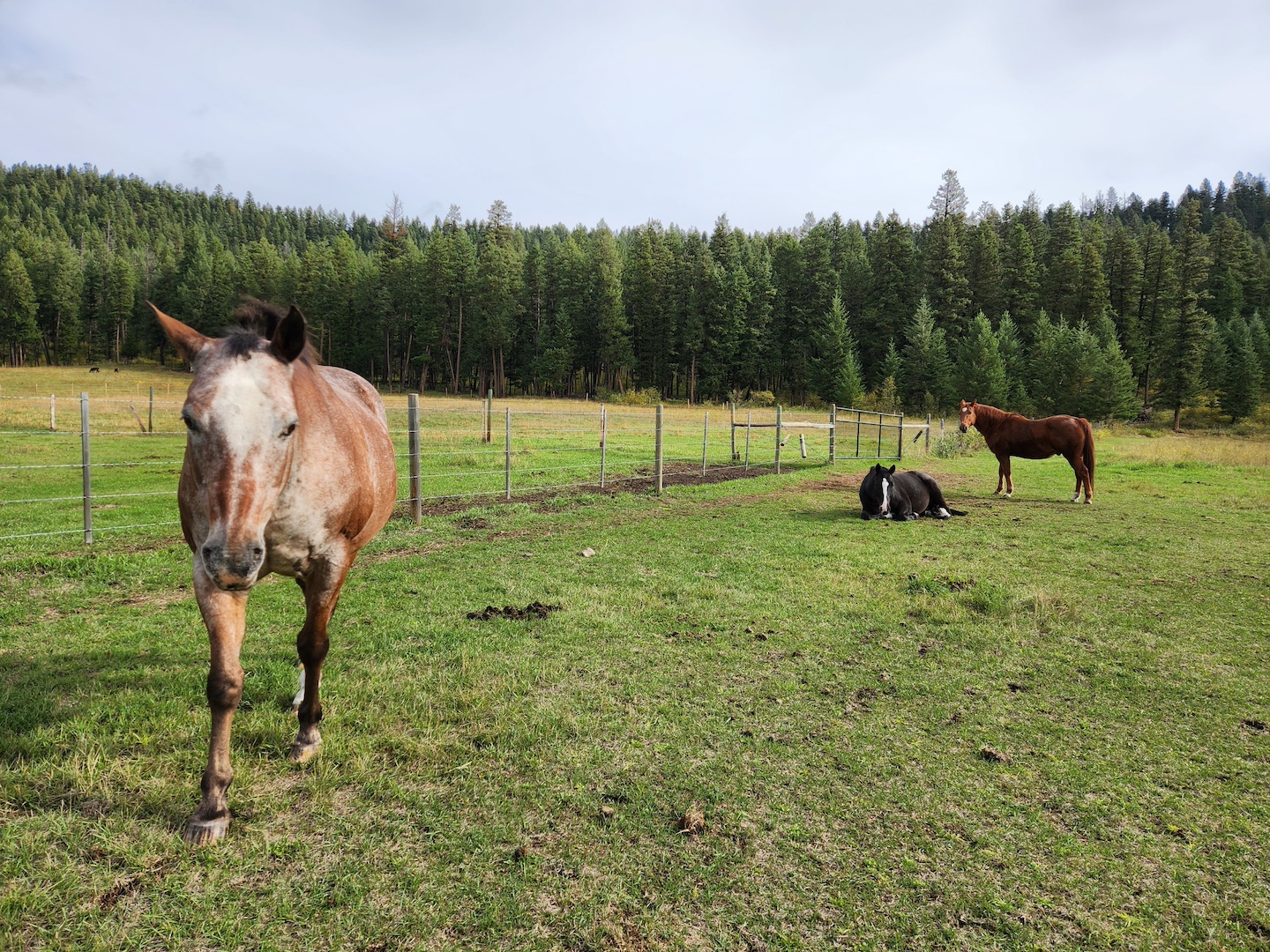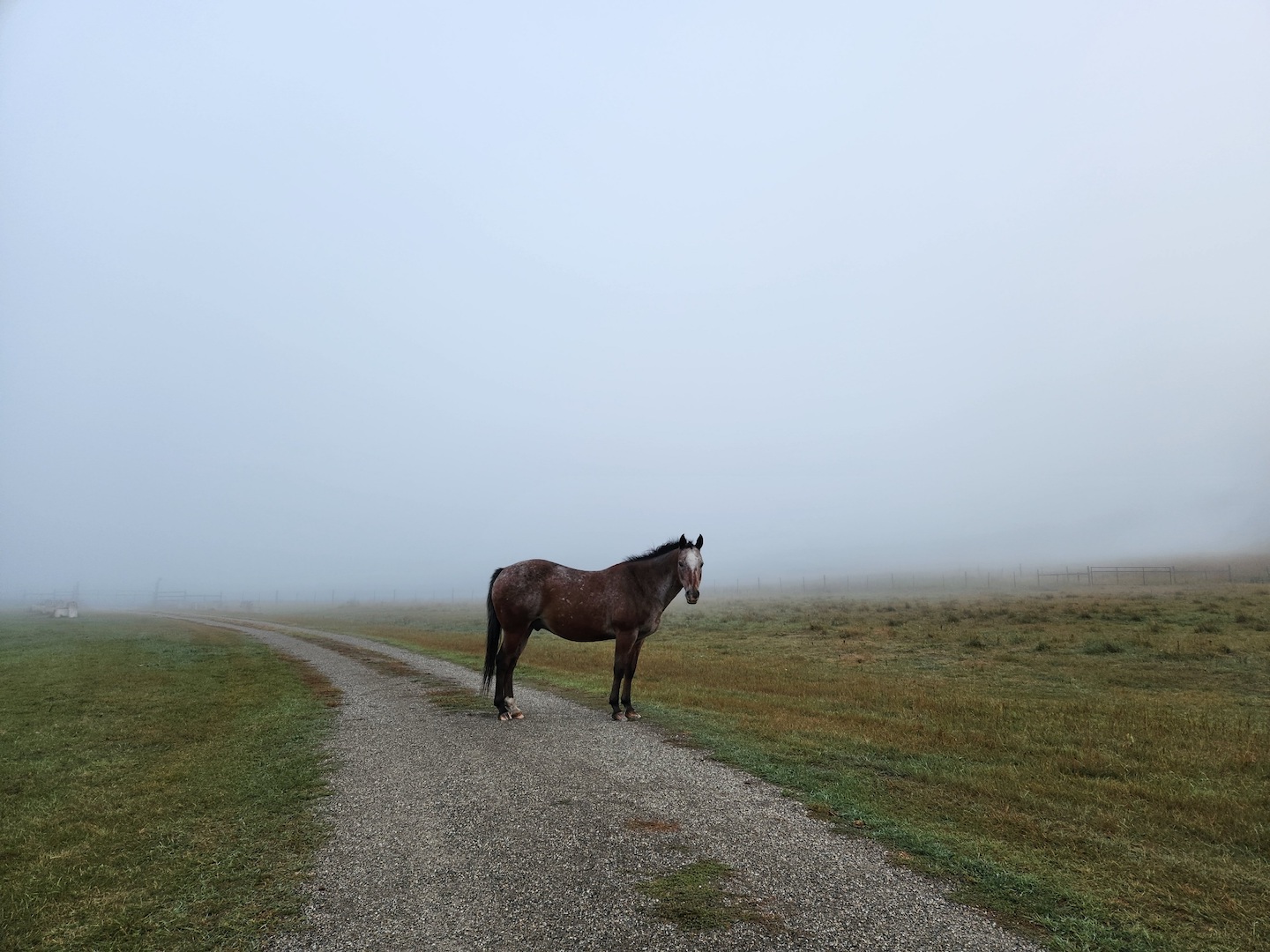Author: Chase Pletts
Published: 2021
Mood: If you feel like you have a dysfunctional family and can’t imagine anyone has it worse and want to read a Western that makes most families’ daily lives look like a single scoop of vanilla ice cream in a clear plastic cup.
I keep seeing reviews of The Loving Wrath of Eldon Quint that say it’s like True Grit, and it’s about a “noble farmer,” and that “Eldon Quint sets off to rid the world of the outlaw Jack Foss once and for all.” I’m here to set the record straight: there’s SO MUCH MORE to this book than those reductive – and inaccurate – statements.
Here are the key facts about The Loving Wrath of Eldon Quint that you need to know:
- Eldon Quint is a farmer, but he’s not noble (until he is)
- His quest is SO much deeper than a fixation on Jack Foss
- True Grit is sparse and blunt, while this book is so richly detailed it sometimes hurts
- Jack aka Clayton aka Su-pe-hi-ye (“Him Without Guts”) deserves top-billing with Eldon
Minor spoilers ahead, because I can’t help myself.

The Loving Wrath of Eldon Quint begins in a totally different 1883 from Taylor Sheridan’s soapy universe. There’s a blizzard. Eldon is trying to bring home a meager bag of game to his two boys at home in their cold, dark cabin. But he falls into a tree well – and is saved by a man referred to as The Outlaw.
The Outlaw is Eldon’s estranged brother who goes by Jack, and it’s immediately clear that he’s estranged for good reason. He’s loud, drunk, violent, and rude. He also comes with baggage in the form of pent-up resentment toward Eldon – and a posse of men hunting him right to Eldon’s door.
The posse obliterates the cabin, and kills one of Eldon’s boys. Jack steals Eldon’s savings and takes off, but Eldon catches him and leaves him for dead. This happens not even ten chapters in, yet the book jacket makes it sound like the entire plot, which doesn’t do the story justice.
Eldon is on two dangerous missions. The first is to take his boy’s body from Dakota Territory to Missouri to be buried next to his mother, without getting himself or his other little boy, Ian, killed. The second is to do whatever it takes to give young Ian a chance at a real life. This requires facing his trauma from childhood abuse, PTSD, and one seriously f*d up relationship with his brother.
Meanwhile, Jack is also on a mission. But his mission started over a decade ago, when his brother disappeared. Jack has to track down his brother yet again, work through his own trauma, and find a purpose in life – all while getting increasingly wounded.
It’s a raw emotional journey for literally everyone involved, and also dark, brutally violent, occasionally funny, totally surprising, and some of the strongest contemporary Western writing you’ll find. AND THE ENDING. Holy shit. It’s one of many places in the book where you can really feel the screenwriter in author Pletts.
![]()
This book’s title is a mouthful. I fully admit that when I received three highly recommended Westerns from a friend in this site’s Facebook group, I read this one last because it sounded like too much. Other reviewers have said that the chewy title is what lured them in. To each their own.
But it’s a delicious payoff when you reach a passage late in the book that specifically references the title in the form of furious smite.
In fact, the entire last part of the book takes place during a torrential storm and devastating flood (which is historically accurate), and has this powerful biblical vibe. I’ve never even read the Bible, being agnostic and all, but as I read those chapters I felt like I was experiencing something almighty and an inevitable reckoning.
This sort of mythical quality is heightened by the dramatic characterizations of the bad guys.
The Major is like a giant, ginger Dr. Moreau (the Marlon Brando version). He did terrible things during the Civil War. He’s treated like royalty by ‘savages’ whom he abuses, and he buys young orphan girls to ‘educate’. He has this lavish, velvet-lined stagecoach, and acts like a giant, murderous toddler – you suspect there’s more, and your suspicions are confirmed by the description of a twisted AF mobile over his bed at the end.
The Imp is 100% a Ben Foster character. Picture Ben Foster in maximum creepiness, like in 30 Days of Night, and you’re close to the ick factor of the Major’s righthand bully.
Then you have the antiheroes.
Eldon tells himself he’s a good dad and husband, but you start to learn how he’s failed his family. He made his wife move west on false promises, and kept her there when it was harming her mental health. He didn’t show his boys love. And he left his brother to deal with their mutual problems alone. The line “It was the past that had killed his son” packs a cruel punch.
Jack has a CRAZY character journey that I resisted at first. I didn’t want him to take the reins as the narrator. I didn’t want his f*d up childhood to explain his actions. But the more you get to know him as Clayton, the more you see this damaged little boy who never stood a chance. And the more you see that the brothers are equally good and bad, broken and strong.
The female characters are well developed, too. Minn is a young woman with a fierce determination no matter how many times life kicks her down. Her presence changes everyone else around her. Magdalena is brilliantly unique woman, with her peg leg, dramatic flair for the arts, and fierce loyalty. She’s that character who has few lines but steals the show.
![]()
The Loving Wrath of Eldon Quint won two Spur awards, for Best First Novel and Best Traditional Novel. Both are well-deserved – the writing is so descriptively immersive that you feel every bit of the love, the hate, the hope, the despair, and the anger. You can picture every field and every town, every building, every interior. It’s right up there with the best Western authors in that regard.
The language is gritty and authentic. The story has a powerful message about fatherhood, and does a great job of dissecting the best and worst parts of human nature. The pacing is strong, because each chapter moves the characters forward while also peeling back more layers of their sordid past.
The one criticism I have, if I have to be nitpicky, is that the lengthy narration between dialogue makes Jack seem like he speaks differently between the start of the book and the end, because you get much more narration than conversation. But perhaps that’s intentional, as the brothers kind of merge into one soul.
Kudos to Pletts on this impressive debut. I look forward to everything and anything he writes next.


